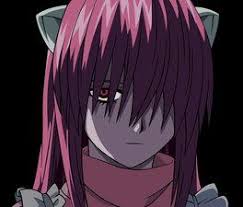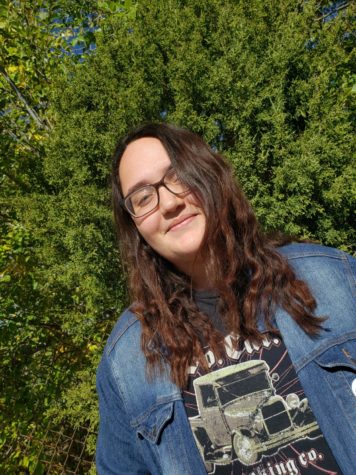Elfen Lied: A Painstaking Visual on Humanity & Humans

courtesy of tvtropes
Lucy, a diclonius specimen, with a grim expression painted on her face.
January 24, 2018
The human race is inclined to have humanity: benevolence, compassion, and moral capabilities of experiencing empathy to those in strife, pain, and chaos on earth.
But is that claim a correct one? Under what circumstances do humans disorderly stray from their inclination to be compassionate in order to inflict greater detriment to those who they feel contested by? Elfen Lied, a 2004 anime adaption that may be seen on Hulu or Netflix and from a Japanese manga series is a perfect example of this conflict, and it questions the validity of the actions inflicted upon another race of specimen known as the “Diclonius” species as well as what it truly takes to be “human.”
The first episode begins with copious amounts of grisly violence and macabre imagery as we see what seems to be a young female by the name of Lucy: a notorious known killer and Diclonius specimen that acts upon instinct in a ravage way to escape the facility she was kept captive in. Guards that had worked at the facility had been murdered heinously by Lucy’s invisible arms known as vectors, severing their bodies into tiny pieces. As Lucy escapes the facility with an injury, she splits into a second personality as two cousins by the name of Kouta and Yuka discover her body at a nearby beach. Unable to formulate coherent words and sentences, Lucy manages to only reply with “Nyu” a term that Kouta and Yuka decided to call her being with no knowledge of where she came from and how she had gotten there.
As the story progresses, we begin to understand the reasoning as to why Lucy and the rest of the Diclonius species act in such a brutal manner. We are introduced to a variance of things characters, meeting them and their relativity to the Diclonius species, or their relativity to the cousins Kouta and Yuka. We’re introduced to abuse or trauma in childhood and how those traumatic events can cause perpetual damage to how young children may develop, and how they may take that pain to formulate a belief that what they do and how they act is lawful and just. Through images of abuse, unruly violence, and gore, we may only muse to ourselves about the type of world we live in and the type of people that propel these horrid iniquities to occur day by day.
Though the series gives an outstanding message and portrayal of our society, the momentum is discontinuous from beginning to end and changing from to slow to fast on necessary or unnecessary segments. This happens to be a common challenge for some when creating a film or TV series, and isn’t something to be too fixated on when watching a show, especially one like this. Although it isn’t something to be too worried about, it’s worth acknowledging. Throughout the show, one can find themselves heavily invested in the plot, the characters, and the presentation of the show itself if they bluntly ignore the pacing and how well the producers managed the timing of it
Elfen lied is a profusely astounding and introspective series. The show gives us the gift of understanding how important it is for us as human beings to recognize perspective and how we can misconstrue someone, or in this case, something. Despite the abundant amount of gore and insufferably cruel acts upon a multitude of people and the Diclonius species, it held a heavy and touching message that really stayed with me and made me ask one of the most important things that is still an existent question one must ask themselves in times of great disparity: What really makes someone human, and what does it take to define something as a place with humanity? The show gives its audience enough tears, chortles, and gasps to last a lifetime and I hope more people indulge themselves into the series that is Elfen Lied.

